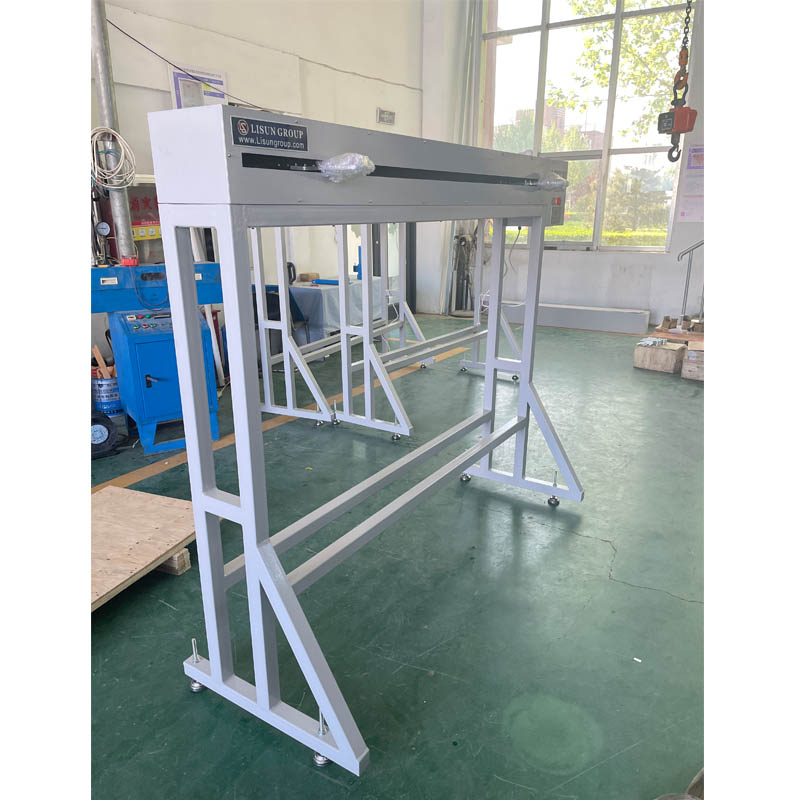tensile force tester factories
The Role of Tensile Force Testers in Manufacturing
In today’s fast-paced manufacturing landscape, quality assurance and performance testing are of paramount importance. One critical instrument utilized to ensure the mechanical integrity and quality of materials is the tensile force tester. These devices play a vital role in various industries, from aerospace and automotive to textiles and construction. Understanding the mechanics of tensile force testers and the factories that produce them can offer valuable insights into their significance in modern manufacturing.
What is a Tensile Force Tester?
A tensile force tester, often referred to as a tensile testing machine, is a device used to measure the mechanical properties of materials when subjected to tension. It assesses how materials deform and ultimately fail when stretched. This testing is crucial in determining attributes such as tensile strength, yield strength, elongation, and modulus of elasticity. These properties are essential in ensuring that materials can withstand the forces they will encounter in real-world applications.
Importance in Manufacturing
The tensile testing process is not merely a formality; it provides quantitative data that informs the design and production processes. When manufacturers understand the tensile properties of their materials, they can make informed choices about material selection, design specifications, and production techniques. In sectors such as aerospace and automotive, where safety is non-negotiable, the data yielded from tensile tests can mean the difference between a safe, reliable product and one that may fail catastrophically.
Moreover, tensile testing assists manufacturers in complying with industry standards and regulations. Different sectors have various specifications that materials must meet; tensile testing provides the empirical data needed to substantiate compliance with these standards.
The Production of Tensile Force Testers
Tensile force tester factories operate at the intersection of engineering and manufacturing. These facilities are equipped with advanced technology and precision machinery to produce testing machines that adhere to high standards of quality and accuracy. The production process involves several critical steps, including design, prototyping, material selection, and assembly.
Design and Engineering
The design phase is where the blueprint for the tensile tester is created. Engineers focus on factors such as the machine’s capacity, the type of materials it will test, and the specific features required by end-users. This stage often involves simulations and modeling to predict the machine’s performance under various testing conditions.
tensile force tester factories

Prototyping
Once the design is finalized, a prototype is produced. This prototype undergoes rigorous testing to ensure it meets the desired specifications. Engineers analyze the data collected from these tests and make necessary adjustments. Prototyping is a crucial step, allowing for the identification and rectification of any design flaws before mass production begins.
Material Selection
The materials used in constructing tensile testers must withstand significant stress without yielding. Factories typically source high-quality metals and components that ensure durability and precision. This selection process is vital; subpar materials could compromise the reliability of the testing results.
Assembly and Calibration
After sourcing the materials, the assembly process begins. Skilled technicians carefully assemble each component, ensuring that every machine meets the exact specifications laid out in the design phase. After assembly, machines undergo calibration procedures to verify their accuracy. Calibration is essential, as it ensures that the data obtained from tests will be reliable and consistent.
The Future of Tensile Force Testers
As technology advances, so too does the field of tensile testing. Innovations such as computer-controlled testing machines and the integration of artificial intelligence are enhancing the capabilities and accuracy of tensile testers. Factories are increasingly adopting automation and digital solutions to streamline production processes and improve quality control.
Moreover, the growing emphasis on sustainability is pushing manufacturers to explore new materials and testing methods. Tensile force testers will continue to evolve, adapting to the changing demands of industries and contributing to the development of safer, more effective materials.
Conclusion
The role of tensile force testers is indispensable in the manufacturing sector. By ensuring that materials meet necessary standards of strength and durability, these machines contribute to the production of high-quality products across various industries. As factories continue to innovate and adapt to new technologies, the future of tensile testing looks promising, paving the way for even greater advancements in material science and engineering.
-
Why the Conductor Resistance Constant Temperature Measurement Machine Redefines Precision
NewsJun.20,2025
-
Reliable Testing Starts Here: Why the High Insulation Resistance Measuring Instrument Is a Must-Have
NewsJun.20,2025
-
Flexible Cable Flexing Test Equipment: The Precision Standard for Cable Durability and Performance Testing
NewsJun.20,2025
-
Digital Measurement Projector: Precision Visualization for Modern Manufacturing
NewsJun.20,2025
-
Computer Control Electronic Tensile Tester: Precision and Power for the Modern Metal Industry
NewsJun.20,2025
-
Cable Spark Tester: Your Ultimate Insulation Assurance for Wire and Cable Testing
NewsJun.20,2025
 Copyright © 2025 Hebei Fangyuan Instrument & Equipment Co.,Ltd. All Rights Reserved. Sitemap | Privacy Policy
Copyright © 2025 Hebei Fangyuan Instrument & Equipment Co.,Ltd. All Rights Reserved. Sitemap | Privacy Policy
